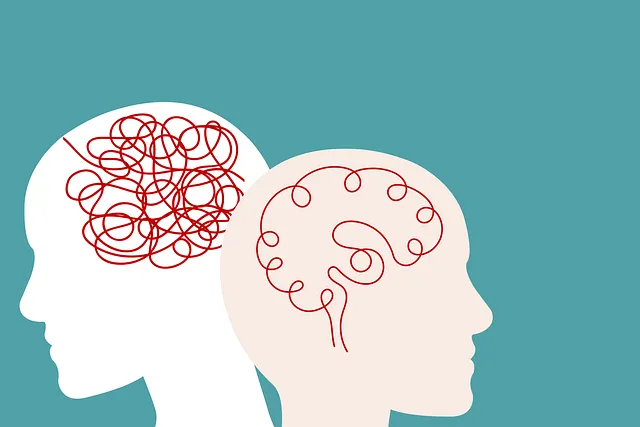The Kaiser Permanente Mental Health Access Center in Louisville leads the way in culturally sensitive healthcare by addressing the unique challenges faced by Louisville's diverse population. They bridge communication gaps, adapt to various languages and customs, and offer tailored services through initiatives like the Mental Wellness Podcast Series. By fostering an inclusive environment with a diverse staff, providing comprehensive risk assessments, and implementing strategies like multilingual resources and cultural affinity groups, the center enhances mental wellness outcomes for all community members. Their personalized, culturally-tailored care ensures every patient feels heard, respected, and empowered on their journey to mental well-being.
In a world increasingly defined by cultural diversity, the practice of mental healthcare must evolve to meet the unique needs of every community. This article explores cultural sensitivity within the context of mental healthcare in Louisville, focusing on the perspective and initiatives of Kaiser Permanente Mental Health Access Center. We delve into strategies for overcoming barriers to access, customizing care approaches, and building trust among diverse populations, highlighting the importance of cultural competence for healing and well-being.
- Understanding Cultural Diversity in Mental Healthcare: A Louisville Perspective
- The Role of Kaiser Permanente in Promoting Cultural Sensitivity
- Overcoming Barriers: Accessing Mental Health Services for Diverse Communities
- Customizing Care: Adapting Treatment Approaches for Cultural Competence
- Building Trust and Fostering Healing Environments in Mental Healthcare
Understanding Cultural Diversity in Mental Healthcare: A Louisville Perspective

In Louisville, the Kaiser Permanente Mental Health Access Center recognizes and embraces the diverse cultural landscape within its community. Cultural sensitivity is a cornerstone of their approach, ensuring that mental healthcare services are accessible and tailored to meet the unique needs of various populations. This perspective is especially relevant given the city’s rich cultural tapestry, where residents from diverse ethnic backgrounds coexist, each bringing their own traditions, beliefs, and perspectives on health and wellness.
By integrating communication strategies that bridge cultural gaps, the center fosters an environment of trust and understanding. This involves learning and adapting to different languages, customs, and expressions of distress or healing. Moreover, promoting positive thinking and mental wellness through initiatives like the Kaiser Permanente Mental Wellness Podcast Series Production caters to a wide range of audiences, encouraging open conversations about mental health in a culturally relevant manner.
The Role of Kaiser Permanente in Promoting Cultural Sensitivity

Kaiser Permanente, a renowned healthcare organization, has been at the forefront of promoting cultural sensitivity in mental healthcare practices, particularly through its dedicated Mental Health Access Centers. One such center is located in Louisville, offering comprehensive services tailored to diverse communities. This initiative reflects a broader commitment to addressing the unique challenges faced by minority and culturally diverse populations in accessing quality mental health care.
By establishing these access centers, Kaiser Permanente aims to foster an inclusive environment where healthcare providers from various cultural backgrounds can offer specialized support. This approach not only enhances the overall mental wellness of individuals but also focuses on burnout prevention strategies for healthcare professionals. Moreover, these centers facilitate risk assessment for mental health professionals, ensuring they are equipped to handle a wide range of cultural considerations and delivering sensitive care tailored to each patient’s background and needs.
Overcoming Barriers: Accessing Mental Health Services for Diverse Communities

Overcoming barriers to accessing mental health services is a critical aspect of providing culturally sensitive care, especially for diverse communities. Many individuals from underrepresented groups face unique challenges in seeking support, such as language barriers, cultural stigma, and a lack of diverse healthcare providers. For instance, at the Kaiser Permanente Mental Health Access Center in Louisville, efforts are focused on addressing these issues through specialized services. They offer multilingual resources, cultural affinity groups, and tailored therapy programs to ensure all community members can access mental wellness support.
One effective strategy is implementing Healthcare Provider Cultural Competency Training, which equips professionals with the knowledge and skills to deliver culturally responsive care. Additionally, encouraging mental wellness journaling exercises in diverse communities can normalize conversations about mental health while offering personal spaces for reflection. By combining these initiatives with dedicated access centers, we can significantly improve mental health outcomes for all, ensuring that everyone has the opportunity to thrive.
Customizing Care: Adapting Treatment Approaches for Cultural Competence

At the Kaiser Permanente mental health access center Louisville, recognizing and respecting cultural diversity is integral to providing effective care. Customizing treatment plans to align with a patient’s cultural background ensures that their unique needs are met. This involves adapting therapeutic approaches, communication styles, and even specific interventions to foster a sense of comfort and trust. For instance, incorporating culturally relevant activities or techniques can significantly enhance engagement in therapy.
By tailoring care, mental health professionals at Kaiser Permanente Louisville not only improve patient outcomes but also promote healing and growth. This personalized approach addresses not just symptoms like depression prevention but also empowers individuals to develop inner strength through understanding and embracing their cultural identity. It’s about creating a safe space where every patient feels heard, respected, and supported on their journey towards mental well-being.
Building Trust and Fostering Healing Environments in Mental Healthcare

Building trust is a cornerstone of effective mental healthcare, especially when serving diverse communities. At Kaiser Permanente’s mental health access center in Louisville, the focus on cultural sensitivity means creating safe and welcoming environments that resonate with individuals from various backgrounds. This involves understanding and respecting unique cultural beliefs, values, and practices related to mental illness and healing. By fostering open communication and tailoring care to individual needs, healthcare providers can establish strong therapeutic alliances.
This trust-building process goes beyond words; it’s about ensuring physical spaces are accessible and comfortable, incorporating culturally relevant self-care routines and trauma support services, and even organizing stress management workshops to cater to diverse populations. Such initiatives not only enhance patient experiences but also encourage individuals to seek mental health support when needed, ultimately improving outcomes in a holistic manner.
Cultural sensitivity is a cornerstone of effective mental healthcare, and organizations like Kaiser Permanente’s mental health access center in Louisville are leading the way. By understanding cultural diversity, promoting inclusivity, overcoming barriers to access, customizing care approaches, and building trusting healing environments, we can ensure that all individuals receive respectful and competent support. This holistic approach not only enhances patient outcomes but also fosters a more equitable and just mental healthcare system for diverse communities.






